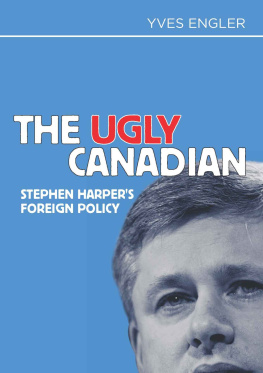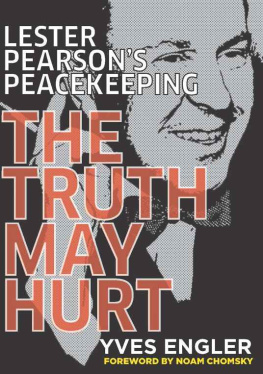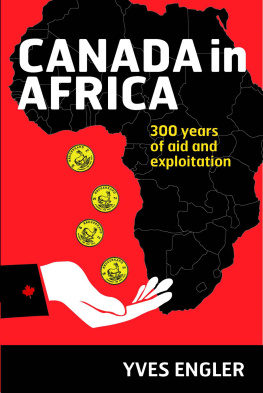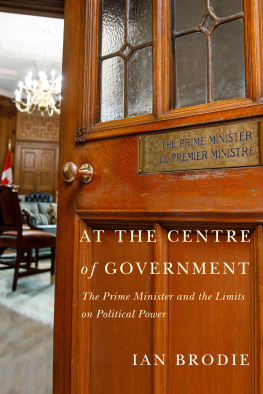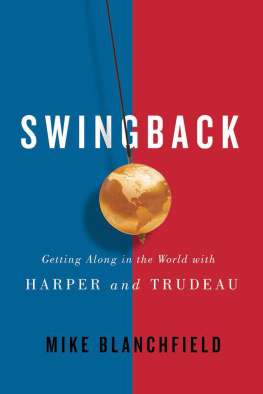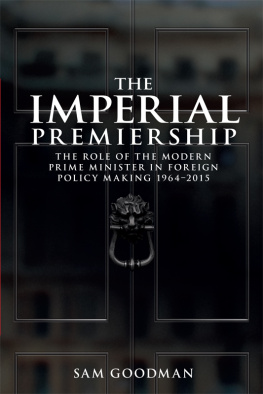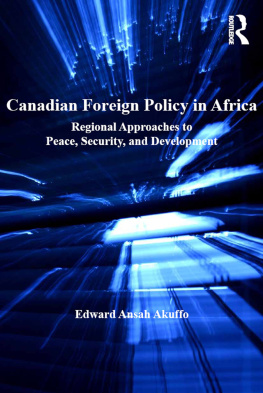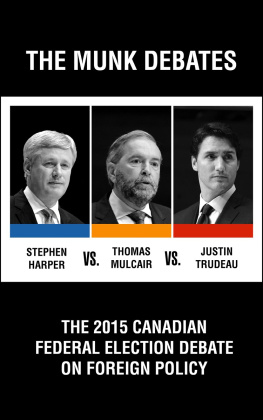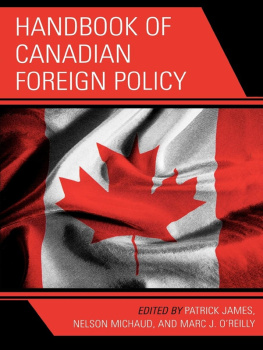Introduction
Since becoming prime minister the thing thats probably struck me the most in terms of my previous expectations is not just how important foreign affairs/foreign relations is, but in fact that its become almost everything.
Stephen Harper June 2011
While millions disagree with Stephen Harper and his Conservative Partys domestic agenda, fewer Canadians are aware of his governments destructive foreign policy. Many of us only pay close attention to matters that directly affect us, or our families. So, when the Conservatives make it harder to collect employment insurance or raise the old age pension age, people notice because it affects them, or someone they know. When a Conservative MP introduces a private members bill to restrict a womans right to choose an abortion, media outlets across the country report on it and pundits produce reams of analysis, much of it critical. But, when our government encourages a coup in Honduras or mining legislation to benefit Canadian companies over indigenous communities in Peru, there is little critical reporting in the dominant media. This is because the only direct Canadian self-interest tends to be that of the companies trying to profit from the situation. Investors put pressure on the government to promote their self-interest while few, if any, Canadians have a direct stake in defending Honduran democracy or the rights of poor villagers in a remote corner of Peru.
The purpose of this book is to shed some light on the Harper governments international policies. Understanding what is being done in our name is the first step to motivating Canadians to care about foreign policy. Only when enough of us care is there a possibility of developing a counterweight to the narrow self-interests of corporations and wealth holders. Only if Canadians of good will and social conscience act together to demand a foreign policy based on solidarity and mutual support will there be any possibility of achieving that goal. Only if we build a sense of solidarity between Canadians and ordinary people around the world will we have a chance of making foreign policy a significant issue in the next election. If we do nothing the status quo as outlined here will continue.
This book is about the Harper-led Conservative governments militaristic and corporate-oriented foreign policy. It documents the sordid story of this countrys sabotage of international environmental efforts, of a government in bed with tar sands producers and a mining industry widely criticized for abuses. The book also details some case studies such as the Conservatives opposition to the Arab Spring democracy movement and backing for repressive Middle East monarchies as well as Canadas extensive military campaign in Libya. It explores Harpers far-reaching support for a right-wing Israeli government and backing of aggression in Iran, Lebanon and Somalia. Finally, the book delves into the Conservatives militarism, lying about Afghanistan, indifference to post-earthquake Haitian suffering and opposition to social transformation in Latin America.
These policies spurred an unprecedented international backlash against Canadian foreign policy, culminating in a stunning rebuke when the Harper government lost its bid for a UN Security Council seat in October 2010. Since Harpers first minority government in 2006, the Conservatives have been offside from the world community on a host of issues. For example, they were repeatedly criticized for sabotaging international efforts to improve health and environmental standards; the BRICS nations (Brazil, Russia , India , China and South Africa) jointly criticized Canadas withdrawal from the Kyoto Protocol; some European Union MPs publicly complained about the Conservatives aggressive lobbying on behalf of tar sands producers; many countries have opposed Ottawas unflinching support of Israeli aggression; the Congolese government denounced Canadas bid to delay its debt forgiveness. Ottawa was also offside from almost the entire hemisphere over its tacit support for a military coup in Honduras and angered the Venezuelan government by meddling in that countrys political affairs. In 2010 Canada (along with the US) was excluded from the newly created Community of Latin American and Caribbean States.
The anger at Canada has not been confined to diplomats and government ministers. At the grassroots level some Afghan civilians said they wanted to kill Canadians while Somali militants called for attacks inside this country and CSIS feared that Ottawas actions in Lebanon could see Canada targeted. In Haiti protestors regularly criticize Canadian imperialism and dozens of communities across the globe are in conflict with Canadian mining companies. But this international opposition has failed to significantly alter the governments course. The Conservatives simply dont care what the rest of the world thinks. In fact, their political godfathers celebrate international hostility. To a large extent the Conservatives take their foreign policy cues from the right wing of the US Republican Party. Author Andrew Nikiforuk argues: Republican religious tribalism is now Ottawas worldview. Clearly, the Conservatives are inspired by individuals such as Sarah Palin (global warming studies [are] a bunch of snake oil science), Newt Gingrich (we have invented the Palestinian people) and John McCain (Bomb, Bomb, Bomb, Bomb, Bomb Iran). Sounding much like Palin, Gingrich and McCain, as opposition leader, Harper repeatedly criticized Prime Minister Jean Chrtien for not fully supporting George W. Bushs 2003 invasion of Iraq.
The Conservatives have also taken an increasingly aggressive tone against the UN, a longtime punching bag of the US right. During the third UN anti-racism conference in September 2011 immigration minister Jason Kenney helped set up a counter conference in New York. (Sort of like when the anti-corporate globalization movement organizes counter summits, but in this case the organizer was a sitting cabinet minister.) The only government minister to participate, Kenney joined with former right-wing Republican presidential candidate Mike Huckabee and George W. Bushs ambassador to the UN, John Bolton, who once said [the UN] Secretariat Building in New York has 38 stories. If you lost ten stories today, it wouldnt make a bit of difference. In June 2012 Conservative MP Larry Miller called for Canada to withdraw from the UN.
More than six years of Stephen Harper as prime minister has emboldened the most right wing elements of the Conservative Party. In fact, foreign policy is the one arena where the neo-conservative leaders of the Conservative Party allow their true colours to be on display. They know that most Canadians disagree with their neoconservative, pro-US empire politics. But they also know that few of us pay much attention to what happens outside this countrys borders. The goal of this book is to be a small spark in lighting a fire of interest in Canadian foreign policy.
Note on sources
Most of the information in this book is from government websites and newspapers such as the Toronto Star, Globe and Mail, Ottawa Citizen, National Post, La Presse and Le Devoir. Other sources include more specialized publications like Embassy and the Canadian Jewish News as well as a wide selection of the international press. Some of the information also comes from activist groups such as Mining Watch and the Coalition to Oppose the Arms Trade or websites such as The Tyee, Rabble, Upside Down World or The Dominion.
The source for quotes and controversial facts is in the text along with the month and year. Because all the information in this book is easily accessible through a Google or Canadian Newsstand search, no endnotes have been included.
1. Tar Sands Diplomacy
No issue threatens humankind more than anthropogenic global warming. The American Meteorological Society says there is a 90 percent chance that global temperatures will rise by 3.5 to 7.4 degrees Celsius in less than one hundred years. The Climate Vulnerability Monitor claims climate disturbances are already responsible for as many as 350,000 deaths per year, a number expected to hit one million by 2030.
Next page
